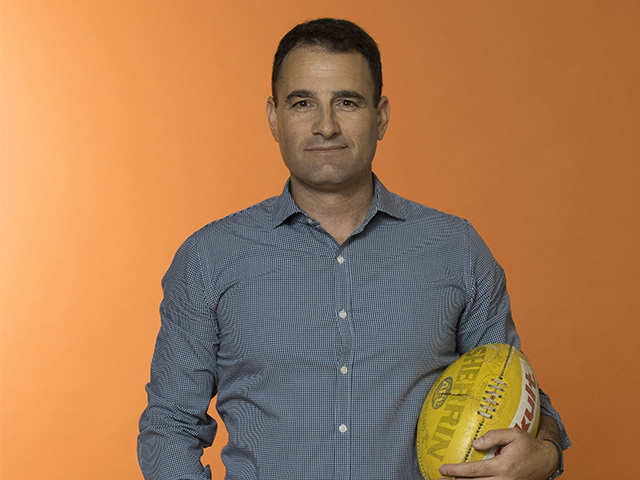Wisewould Mahony’s property and conveyancing lawyers in Melbourne and Geelong have extensive experience acting for developers, vendors, and purchasers across a wide range of property matters including acquisitions and disposals, developments, staged subdivisions, and off-the-plan contracts. Our lawyers advise on a broad range of property-related issues, ensuring you receive accurate and reliable guidance not only for your immediate transaction but for any legal concerns that may arise in connection with your property.
Property transactions can range from straightforward to highly complex. Whether buying a home, transferring property within a family, or managing a commercial development, legal advice can help prevent costly issues and ensure compliance. The table below outlines property transaction types, relevant legal services, and the risks involved with property transactions.
| TYPE OF PROPERTY MATTER | KEY RISKS | LEGAL SERVICES | LEGAL COMPLEXITY |
| Buying or selling residential property | Contract errors, delays in settlement, or unexpected liabilities | • Conveyancing and settlement services • Contract review and negotiation Property • Due diligence | Medium |
| Purchasing off-the-plan property | Delays, changes to plans, or developer insolvency | • Contract advice • Risk assessment | Medium-High |
| Buying or selling commercial property | Zoning, GST, lease issues, or title complications | • Commercial conveyancing and settlement services • Commercial contract drafting • Lease and zoning advice • GST and duty guidance | High |
| Transferring property between family members or trusts | Stamp duty, CGT, or compliance issues | • Structuring advice • Transfer documentation • Tax and duty planning | Medium |
| Subdividing or developing land | Planning approvals, title registration, or infrastructure obligations | • Development agreements • Subdivision advice • Regulatory compliance | High |
| Dealing with property disputes or caveats | Delays in transactions, financial loss, or litigation | • Dispute resolution • Caveat advice • Legal representation | High |
Legal Complexity Guide
Low
Routine property matters involving standard documentation and minimal negotiation.
Medium
Property transactions requiring tailored legal advice, contract negotiation, or strategic planning.
High
Complex property matters involving commercial transactions, development projects, disputes, or regulatory compliance.
Property transactions in Australia involve a range of legal processes, from contract preparation to settlement. Legal oversight can assist in identifying potential risks such as title issues, contractual ambiguities, or compliance concerns.
Our expertise:
- Residential and commercial conveyancing
- Contract drafting and review
- Title and property searches
- GST considerations in property transactions
- Off-the-plan sale and purchase matters
Frequently Asked Questions
What does a property lawyer do?
A property lawyer provides legal advice on buying, selling, and managing property. They ensure contracts are properly structured, risks are identified early, and transactions comply with Victorian property laws, protecting you from unexpected liabilities and costly disputes in the future.
What is the difference between a conveyancer and a property lawyer?
Conveyancers manage the administrative side of property transactions, such as preparing documents and coordinating settlement. Property lawyers provide legal advice on complex issues like property disputes, zoning, and contract risks. Through thorough due diligence, property lawyers help identify and prevent potential liabilities before they arise, ensuring property transactions are not only compliant but protected from future complications.
How much does conveyancing cost?
Wisewould Mahony’s conveyancing services start from $1,950 plus GST and disbursements. While our fees are higher than most conveyancers, this reflects the thorough due diligence and legal oversight provided by our lawyers. By proactively identifying and addressing potential risks up front, we help prevent costly liabilities or disputes from arising in the future, ultimately saving you money and stress throughout your property transaction.
What is an off-the-plan purchase?
An off-the-plan purchase involves buying a property before it has been built. These contracts can be complex and may include clauses about construction timelines, changes to design, and sunset dates. Our property lawyers ensure buyers understand their rights and obligations before committing.
What are common risks in property contracts?
Risks may include unclear terms, missing disclosures, or conditions that affect settlement. Our lawyers identify these issues early and provide advice on how to manage or negotiate them.
Property development in Australia is subject to planning laws, zoning regulations, and council requirements. Legal advice may be required to interpret planning schemes, respond to council conditions, or manage land use agreements.
Our expertise:
- Planning permit applications and advice
- Zoning and overlay compliance
- Section 173 Agreements
- Subdivision approvals and documentation
- Easements and restrictive covenant matters
- Environmental and contamination issues
Frequently Asked Questions
What is the role of zoning in property development?
Zoning determines how land can be used, such as for residential, commercial or industrial purposes. It may also include overlays that influence development potential. Understanding zoning is important before purchasing or developing property.
Can planning permits be challenged or amended?
Yes. Applicants may seek amendments or appeal council decisions through planning tribunals. Legal advice assists in preparing submissions or navigating the appeals process.
What are restrictive covenants?
Restrictive covenants are legal obligations registered on title that limit how land can be used. They may affect building design, land use, or subdivision. Legal advice helps interpret these restrictions and assess their impact.
What is a Section 173 Agreement in Victoria?
A Section 173 Agreement is a legal contract between a landowner and local council that sets conditions on land use or development. Our lawyers help you understand your obligations, negotiate fair terms, and avoid future legal or financial exposure.
Disputes over property can arise from contract breaches, caveats, easements, or development issues. Our property lawyers resolve disputes efficiently, protecting your legal position, and providing clear guidance on potential legal costs from the outset. We represent clients in proceedings before the Victorian Civil and Administrative Tribunal (VCAT) and other courts, offering strategic advice on enforcement and negotiation. Whether you’re facing a boundary dispute, caveat challenge, or contractual conflict, we offer clear, practical guidance to help you achieve a cost effective resolution.
Our expertise:
- Contractual defaults and enforcement
- Caveats and boundary disputes
- Easement and covenant disputes
- Representation in VCAT and court proceedings
- Risk assessment and negotiation strategies
Frequently Asked Questions
How much does it cost to resolve a property dispute?
Costs vary depending on the complexity of the dispute and whether the matter settles early or proceeds to a hearing. Our lawyers advise clients with their cost considerations in mind. We provide clear cost estimates upfront and discuss options for managing expenses throughout the property litigation process.
Can I recover legal costs if I win?
In some cases, yes. Courts and tribunals may award costs to the successful party, but this is not guaranteed.
What is VCAT’s role in property disputes?
The Victorian Civil and Administrative Tribunal (VCAT) hears a range of property-related disputes, including planning, tenancy, and land use matters. Our lawyers can assist in preparing submissions and presenting your case.
What is a caveat and when is it used?
A caveat is a legal notice lodged on a property title to protect an interest in the land. It prevents the property from being sold or transferred without notifying the caveator. Legal advice is recommended when lodging or responding to a caveat.
How are boundary disputes resolved?
Boundary disputes may involve survey evidence, title interpretation, and negotiation. If unresolved, they can be addressed through mediation or legal proceedings. Legal representation can assist in protecting property rights and resolving the matter.
Partner
Cain McGirr
Partner
Julie Barkla
Consultant
Frank Field
Senior Associate
Anne Pantelidis
Senior Associate
Diana Ting
Senior Associate
Gilli Chan
Lawyer
Allen Bagatsing
Lawyer
Victoria Khoshaba-Massaro
To speak with a property lawyer, please fill in the enquiry form below. For urgent matters, please call +61 9629 8333 or email melbourne.reception@wisemah.com.au.



















